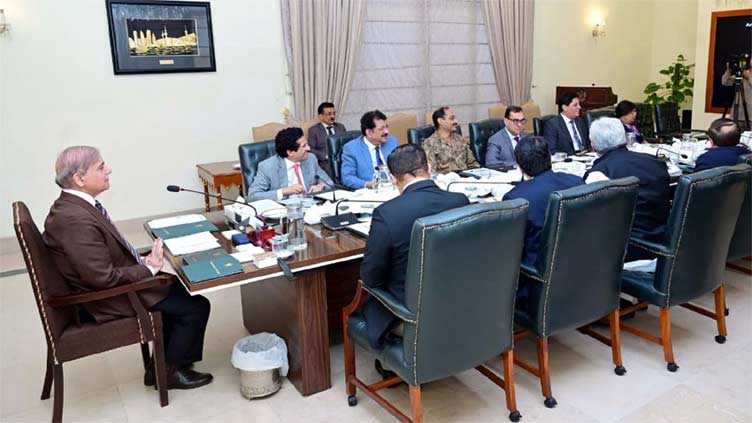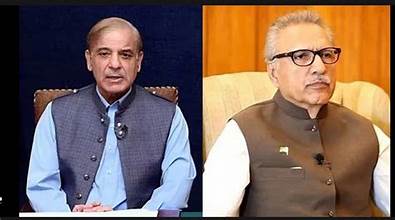Prime Minister Shehbaz Sharif has taken a firm step toward transforming Pakistan’s healthcare system by initiating wide-ranging reforms aimed at improving accessibility, affordability, and quality of medical services across the country. Recognizing the gaps in the current healthcare structure, the premier has unveiled a comprehensive strategy to overhaul the sector, with a strong focus on public welfare and institutional transparency.
A Strategic Vision for Healthcare
In a recent high-level meeting with federal and provincial health authorities, Prime Minister Shehbaz Sharif emphasized the urgent need to revamp Pakistan’s health infrastructure. He directed officials to prioritize reforms that would benefit underprivileged populations, particularly in remote and underserved areas. The Prime Minister reiterated that access to quality healthcare is not a privilege but a fundamental right of every citizen.
His roadmap includes increasing budgetary allocations to the health sector, implementing a performance-based accountability system, enhancing public-private partnerships, and adopting digital tools for efficient service delivery.
Key Initiatives Announced
Among the most notable initiatives announced by PM Shehbaz is the expansion of the Sehat Card program. This initiative, already operational in some regions, provides free medical treatment to low-income families. The Prime Minister has now called for its nationwide implementation, aiming to cover all provinces and ensure universal healthcare access.
Additionally, the government plans to upgrade existing government hospitals, set up new health units in remote areas, and ensure the availability of modern medical equipment and adequately trained staff. A special task force has been formed to monitor these upgrades and guarantee quality standards.
Digitization and E-Health

Another cornerstone of PM Shehbaz’s health strategy is the digitization of medical records and services. The government is working on launching a national e-health platform that would allow patients to access medical consultations online, book appointments, and retrieve digital prescriptions. This move is particularly aimed at reducing overcrowding in hospitals and enhancing patient convenience, especially in rural regions where healthcare access is limited.
Moreover, health information systems are being developed to collect real-time data, which will aid in disease surveillance, resource allocation, and long-term policy planning. The integration of technology into healthcare is expected to improve transparency and combat inefficiencies.
Strengthening the Workforce
To address the critical shortage of medical professionals in Pakistan, PM Shehbaz has ordered the recruitment of thousands of new doctors, nurses, and paramedics. He stressed the importance of fair hiring practices and transparency in the recruitment process. Scholarships and training programs will also be introduced to equip medical personnel with the latest skills and knowledge.
The Prime Minister has also directed authorities to collaborate with international medical institutions for capacity-building programs, allowing Pakistani professionals to benefit from global expertise and best practices.
Tackling Public Health Challenges
Recognizing the growing burden of non-communicable diseases and the continued threat of communicable ones such as polio and hepatitis, the new reforms also include a revitalized public health agenda. PM Shehbaz called for aggressive vaccination campaigns, awareness drives, and regular health screenings at the grassroots level.
He specifically mentioned the need to eradicate polio and pledged continued government support for the Expanded Programme on Immunization (EPI). Additionally, mental health—which has long been neglected in Pakistan—will now be part of the mainstream healthcare system under these reforms.

Coordination with Provincial Governments
Given the devolved nature of healthcare under Pakistan’s constitution, PM Shehbaz emphasized the need for strong coordination between federal and provincial governments. He called for joint task forces and uniform policy implementation across all provinces. Regular progress reviews and inter-provincial meetings will be conducted to ensure that no region lags behind in health improvements.
Ensuring Transparency and Accountability
The Prime Minister also issued strict instructions to eliminate corruption and malpractice in the health sector. He directed the establishment of an independent oversight committee that will monitor the use of funds, ensure fair tendering processes, and track the delivery of promised services.
Public feedback mechanisms will also be enhanced. Citizens will be encouraged to report negligence or inefficiency through dedicated helplines and mobile apps. The government intends to act swiftly on such complaints to build public trust in the healthcare system.
Looking Ahead
PM Shehbaz Sharif’s healthcare reforms represent a significant and timely initiative to modernize a sector that has long struggled under systemic challenges. With a well-rounded approach addressing infrastructure, technology, personnel, and policy, the new initiatives aim to create a patient-centric and efficient healthcare model.
However, much will depend on the implementation phase. While the plans are ambitious and forward-looking, sustained political will, adequate funding, and grassroots engagement will be key to transforming these reforms into lasting results.
The Prime Minister’s commitment signals a hopeful shift for millions of Pakistanis who have long awaited dependable and affordable healthcare. If successfully executed, these reforms could lay the foundation for a healthier, more equitable future for the nation.



